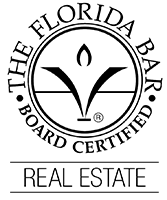Does A Florida Mortgage Become Unenforceable 2 Years After Death?
The mortgage follows the note. So, if the note becomes unenforceable, does the mortgage become unenforceable? The Florida Probate Code provides a 2-year statute of limitations on creditor claims, in addition to the 3-month statute of limitations on claims by reasonably ascertainable creditors. If a lender fails to file a claim within 2 years after the death of a borrower, does the mortgage become unenforceable?
Some lenders choose not to file a claim in a probate estate, thinking that they can sue on the mortgage without filing a probate claim. Taking this approach might cost them the mortgage. A recent case provides some groundwork for defending against such a foreclosure.
In its 11/9/11 opinion Taylor v. Bayview Loan Servicing the Florida 2nd District Court of Appeal held that if a promissory note is secured by a mortgage, and if the note is assigned, then the mortgage follows the note and is automatically assigned along with the note, even if no separate assignment of mortgage is recorded.
The court cited the 1938 Florida Supreme Court case of Johns v. Gillian, 184 So. 140 (Fla. 1938), which said that “the mortgage is but an incident to the debt, the payment of which it secures, and its ownership follows the assignment of the debt.”
Therefore, logically, if the note was not assigned but instead became unenforceable due to the Florida Probate Code’s statute of limitations, would not the mortgage that follows it also become unenforceable?
The mortgage follows the note. So, if the note becomes unenforceable, does the mortgage become unenforceable? The Florida Probate Code provides a 2-year statute of limitations on creditor claims, in addition to the 3-month statute of limitations on claims by reasonably ascertainable creditors. If a lender fails to file a claim within 2 years after the death of a borrower, does the mortgage become unenforceable?






